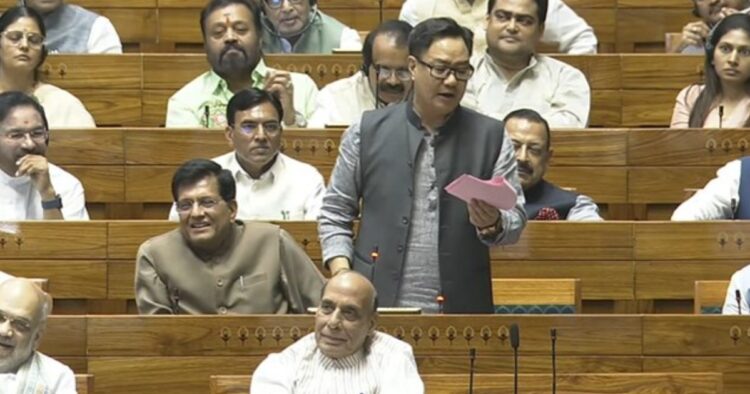- Section 40 removed, stopping Waqf Board from declaring any land as Waqf property.
- District Collector gets authority over Waqf property decisions, not the Waqf Board.
- Appeals allowed in high courts within 90 days against Waqf Tribunal decisions.
The government has introduced a major change in the Waqf (Amendment) Bill, 2024, by removing Section 40, which earlier allowed the Waqf Board to declare any land as Waqf property. Minority Affairs Minister Kiren Rijiju called this the “most draconian” provision of the Waqf Act during a debate in Parliament on Wednesday.
Rijiju explained that under the old law, the Waqf Board had the power to decide if a property belonged to Waqf, and its decision was final unless overturned by a Waqf Tribunal. This led to thousands of private properties being taken over. The new Bill, now renamed the UMEED Bill (Unified Waqf Management Empowerment, Efficiency, and Development Bill), ensures that no land can be arbitrarily declared Waqf property.
The Bill also removes the provision of ‘Waqf by user,’ which allowed land to become Waqf property based on long-term religious use. Now, only a person practising Islam for at least five years can declare Waqf, and the property must be self-owned.
The government has given the power to decide Waqf ownership to the District Collector instead of the Waqf Board. In case of disputes, citizens can now appeal to the high court within 90 days.
Rijiju cited cases from Kerala and Haryana where Christian and Sikh properties were claimed as Waqf land, leading to legal battles. He assured that the new law will prevent such misuse. With this amendment, no land can now be forcefully taken over as Waqf property.

















Comments